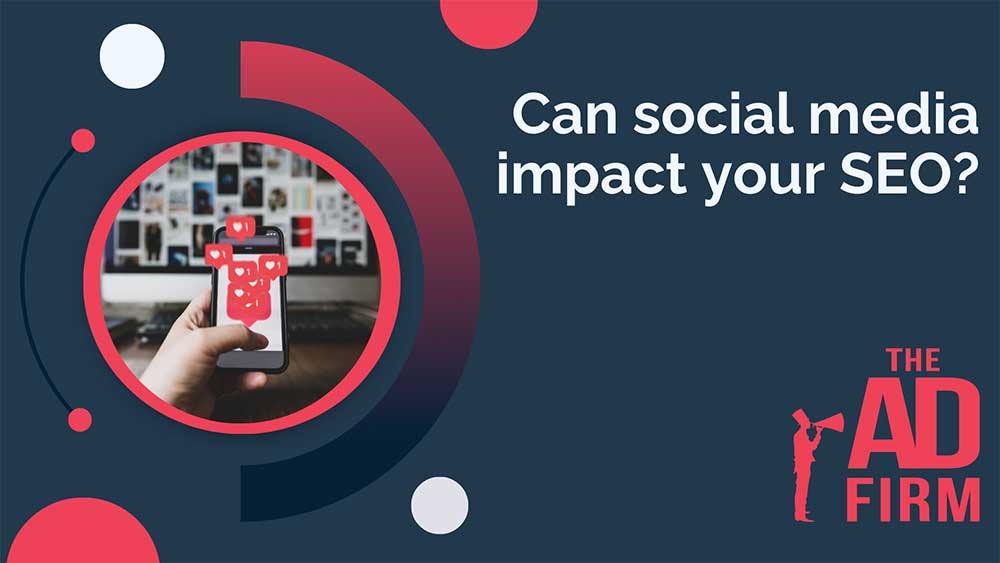Many might not be aware of this, but today’s digital landscape presents an intricate web where social media’s vast influence intersects significantly with search engine optimization (SEO) strategies. This intersection creates a dynamic space where proactive engagement on social platforms can substantially benefit SEO performance. But how does social media exactly impact SEO performance?
This blog delves into the multifaceted role of social media in SEO, highlighting its potential to enhance brand visibility, drive website traffic, influence content reach, aid in link-building efforts, bolster local SEO, and provide measurable insights into strategy performance.
Understanding the Relationship Between Social Media and SEO
Social media’s power to enhance SEO performance lies in its indirect effects – chief among them is its ability to increase brand exposure and website traffic. Specifically, this translates into increased website visits as curious users click through to learn more. As users become familiar with a brand’s content on social platforms, they’re more likely to recall and search for the brand on search engines, boosting organic search metrics.
How Search Engines Interpret Social Signals
While direct correlations between social signals (likes, shares, comments) and SEO rankings might not be explicitly acknowledged by search engines, these interactions contribute to a content’s visibility and perceived value.
Here’s how they do it:
- Tracking Shares and Likes: Search engines monitor how often users share and like content on social media. High numbers of shares and likes suggest the content is valuable and engaging, potentially boosting its search rankings.
- Analyzing Social Media Links: Although direct links from social media are typically nofollow (meaning they don’t directly influence SEO through link equity), search engines recognize these links as indicators of content credibility and interest level.
- Observing User Engagement: Engagement metrics such as comments and the time spent on content shared via social media inform search engines about the content’s relevance to the audience, affecting its visibility in search results.
- Evaluating Brand Mentions: Search engines consider mentions of a brand or website on social media, even without direct links, as a measure of its authority and popularity in its niche.
- Monitoring Content Freshness: Frequent mentions and sharing of content signal to search engines that the content is current and relevant, which can lead to higher rankings for related search queries.
- Identifying Trends and Topics: Search engines use social signals to detect trending topics and interests, adjusting search results to reflect current user interests and information needs.
In essence, search engines use social signals as part of a broader analysis to determine content’s value and relevancy to users, which can influence its search engine rankings indirectly.
Enhancing Brand Visibility and Recognition Through Social Media
Social media platforms are unparalleled in amplifying brand visibility and SEO efforts. This section examines the impact of social shares on content distribution, the importance of user engagement, and strategies for building a strong, recognizable brand on social media.
The Impact of Social Shares on Content Distribution
Social shares are a powerful mechanism for extending the reach of your content beyond the immediate audience to new demographic territories and interest groups. A share by a user not only endorses your content to their followers but also has the potential to initiate a viral spread, substantially increasing content visibility and the likelihood of earning backlinks.
As any SEO services company knows, backlinks are vital for SEO as they signal to search engines the credibility and authority of your website.
Leveraging User Engagement to Boost Online Presence
User engagement on social media – through comments, likes, and shares – activates a brand’s online presence to a higher and better level. This engagement increases the content’s reach and fosters a community around the brand.
Engaged audiences are more likely to convert into website traffic as they follow links posted on social media to learn more or make a purchase. For The Ad Firm, a top SEO company, devising content strategies that encourage high engagement on social media is crucial, as this directly influences organic search visibility and performance.
Strategies for Building a Strong Social Media Brand
Building a strong brand on social media requires a strategic approach that aligns with the overall digital marketing and SEO objectives. This involves consistent branding across all platforms, engaging and high-quality content creation, and active community management.
By establishing a brand and SEO content strategy that resonates with users on social media, companies can enhance brand recall and loyalty, leading to increased searches for the brand and its products or services.
Driving Traffic to Your Website via Social Media Platforms
Social media’s potential to funnel significant traffic to websites is undeniable. This section explores how strategically incorporating website links, utilizing advertising, and analyzing social referrals can drive this aspect of SEO performance.
Effective Ways to Incorporate Website Links on Social Media
Integrating website links into your social media strategy should be done with precision and creativity. This involves more than just adding a link to your bio; it requires embedding links in posts, stories, and visual content where possible.
For instance, an SEO services company might use call-to-action (CTA) buttons on Facebook or swipe-up features in Instagram stories to direct traffic to specific landing pages. It serves as a great way to reach critical metrics for SEO success.
Utilizing Social Media Advertising for Increased Website Visits
Social media advertising stands out for its ability to accurately target users based on demographics, interests, and behavior. This precision targeting ensures that the traffic driven to your website is high in volume and quality, meaning these users are genuinely interested in what you offer.
Social media platforms like Facebook and LinkedIn offer various ad formats designed to increase website visits directly, from sponsored posts to in-feed ads. This enhances both direct traffic and the secondary SEO benefits of increased engagement and visibility.
Analyzing the Impact of Social Referrals on Web Traffic
Understanding the impact of social referrals on web traffic is crucial for refining your social media strategy. This involves using analytics tools to track how much traffic comes from social platforms, traffic behavior (e.g., bounce rate, pages per session), and conversion rates.
Insights gathered can inform the SEO agency about which platforms are most effective, what content resonates best with the audience, and how social media activities contribute to SEO goals like reducing bounce rates and improving user engagement.
Social Media Content and Its Influence on SEO
The content shared on social media doesn’t just live on those platforms; it has far-reaching effects on SEO through enhanced content reach and providing context for search engines.
Creating Shareable Content That Enhances SEO
Social media content significantly influences SEO, extending its reach beyond the confines of social platforms to impact search engine rankings. By creating content that resonates with your audience—whether through humor, informative solutions, or engaging stories—you can encourage shares and interactions. Content that triggers emotional responses or offers tangible value tends to get more shares, directly affecting your content’s visibility and indirectly influencing your SEO performance.
The Importance of Keywords in Social Media Content
While keywords are the cornerstone of SEO, their integration into social media content can also influence search visibility. Keywords used in posts, hashtags, and your profile can help your social media content appear in platform-specific searches and search engine results.
This strategy can drive dual benefits: increasing visibility within social media platforms and enhancing the brand’s overall search engine presence. It is also worth mentioning that a proper balance of keywords used in social media content is essential to ensure you’re not compromising engagement or readability.
Using Visuals and Videos to Improve SEO Through Social Media
Visuals and videos are not just engagement boosters on social media but also in SEO. Content with images and videos performs better in shares and engagement, leading to increased visibility and more opportunities for backlinks. Furthermore, when search engines index these visuals, they can appear in image and video search results, further enhancing a brand’s search engine presence.
The Role of Social Media in Link-Building Strategies
Social media can significantly contribute to link-building efforts, a crucial aspect of SEO. This section covers how social media can encourage external sites to link to your content, the role of collaborations, and the impact on domain authority.
Encouraging External Sites to Link to Your Content
The viral nature of social media makes it an excellent platform for promoting content that external sites might find link-worthy. By showcasing thought leadership, original research, or highly engaging content, businesses increase the likelihood that bloggers, journalists, and other content creators will link to their websites.
These backlinks drive traffic and enhance domain authority, a critical factor in SEO rankings. An SEO agency can help create and promote such content on social media, which can significantly boost its link-building efforts.
Collaborations and Partnerships Through Social Media
Social media facilitates collaborations and partnerships with influencers, industry experts, and other brands that can lead to mutual content sharing and linking. These partnerships often result in high-quality backlinks, as content is shared across platforms and audiences.
For example, a guest blog post exchange or a joint webinar can generate valuable, shareable, and link-worthy content. Effective use of this strategy can enhance a brand’s visibility, authority, and SEO performance.
The Impact of Social Media on Domain Authority
Social media’s role in driving traffic and facilitating backlinks impacts a website’s domain authority. As social content drives engagement and shares, it increases the chances of earning backlinks from reputable sites, boosting the website’s authority in search engines.
A professional SEO services company uses social media not just for its direct benefits but also for its ability to improve the overall SEO health of a website through enhanced domain authority.
Local SEO and the Power of Social Media
Local SEO is crucial for businesses aiming to capture customers’ attention in their geographic area. Consequentially, social media can significantly enhance local SEO through targeted engagement and visibility strategies.
Utilizing Social Media for Local Engagement and Visibility
Social media platforms offer unique opportunities for local businesses to engage directly with their community. Businesses can increase their local relevance and visibility by posting about local events, participating in local conversations, and featuring local customers or products.
Platforms like Facebook and Instagram allow for geo-tagging, which can help posts appear in local search results and discovery feeds. The best SEO agency will always suggest leveraging these features to enhance local search presence and attract more in-store visits.
How Social Check-ins and Reviews Affect Local SEO
Social check-ins and reviews on platforms like Facebook, Yelp, and Google My Business play a significant role in local SEO. They serve as social proof, boosting a business’s credibility and appeal in the local community.
Because these reviews boost local search results, utilizing this as a valuable strategy is crucial to get better visibility results.
Strategies for Optimizing Social Media Profiles for Local SEO
Optimizing social media profiles for local SEO involves ensuring that all business information is accurate, consistent, and complete. This includes the business name, address, phone number, and operating hours.
Additionally, incorporating local keywords into the profile’s description and posts can enhance local search visibility.
Monitoring and Measuring the Impact of Social Media on SEO
It is essential to monitor and measure the impact of social media on SEO to maximize its benefits. This enables businesses to refine their strategies for better results.
Tools and Techniques for Tracking Social Media Engagement and SEO Performance
Various tools and techniques are available for tracking social media engagement and its impact on SEO performance. Google Analytics, for instance, can track website traffic originating from social media, while social media management tools like Hootsuite or Sprout Social can provide detailed analytics on engagement rates.
The best SEO company uses this data to identify which social platforms and content types drive the most traffic and engagement, informing future content and SEO strategies.
Analyzing Social Media Traffic Using Analytics Platforms
Metrics such as bounce rate, pages per session, and conversion rate provide insights into the quality of traffic and its contribution to SEO goals.
For example, high bounce rates may indicate that the content on the landing page isn’t meeting the expectations of the social media audience, signaling a need for adjustment.
Adjusting Your Strategy Based on Performance Metrics
As mentioned a couple of times, continuous analysis of social media and SEO performance metrics is crucial for refining and adjusting strategies.
If certain types of content or specific platforms aren’t delivering the expected SEO benefits, it may be time to pivot or reallocate resources. Likewise, if analysis reveals that social media significantly boosts specific SEO metrics, efforts can be doubled down in those areas.
Key Takeaways
In summary, while social media signals themselves are not direct ranking factors, the indirect effects of social engagement can significantly impact SEO. Increased visibility, user engagement, backlink generation, and brand popularity resulting from social media activity all contribute to how search engines assess and rank content.
The Ad Firm specializes in leveraging the synergy between social media marketing and SEO to elevate your brand’s digital presence. Let us help you navigate the complexities of digital marketing to enhance your SEO through impactful social media strategies. Reach out to The Ad Firm today and take the first step towards transforming your social media content into a powerful tool for SEO enhancement.









